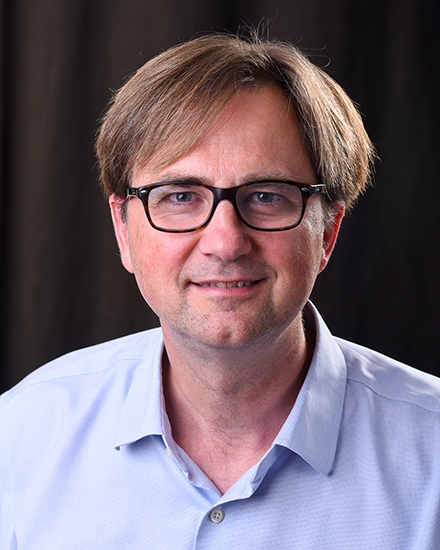Wanted: The Next Generation of Leaders for a TB-free world
Tuberculosis is an ancient disease that continues to plague modern day medicine. When Robert Koch presented his findings on Mycobacterium tuberculosis to a room of physicians in 1882, the German scientist believed his important discovery would be the first step toward the elimination of the disease. Instead, the “White Plague” continues to claim more deaths than any other infectious disease. The World Health Organization (WHO) estimates 1.8 million people die each year from tuberculosis. This translates into a death every 20 seconds, worldwide, of someone who suffers from a disease for which we have known the cause for over 135 years.
What can be done?

Dr. Marcel Behr
Today (March 24) is World TB-Day. With the theme “Wanted: Leaders for a TB-free World” the WHO is focused on ending tuberculosis at all levels, with commitments sought from world heads of states, community leaders, scientists, healthcare providers and people affected with TB of which there were 1,738 in Canada as of 2016. At the McGill University Health Centre and its Research Institute a group of investigators unified by the McGill International TB Centre are doing their part to lead with two complementary approaches to tackle this global problem.
The first approach involves the better use of existing tools, both in Canada and worldwide. Although we have developed tests to diagnose TB and drugs to cure it, too many patients fail to be diagnosed, leading to poor outcomes. McGill International TB Centre investigators have not only contributed to Canadian and WHO guidelines for TB diagnosis and treatment but also contribute to new knowledge to inform updated strategies. Just this month, work led by Dr. Dick Menzies resulted in new WHO guidelines for the treatment of drug-resistant TB.
The second approach is to better understand the disease to design a better vaccine. Beginning with work led by Dr. Emil Skamene and colleagues over 30 years ago, investigators at the Research Institute of the MUHC have led studies about the interaction of the BCG vaccine with the host and how this is governed by our genetically controlled host response. This extends to work by Professor Erwin Schurr, who showed that human genetic variation in part explains why some individuals exposed to the bacteria do not develop the infection. Recent work done by Dr. Maziar Divangahi and his team at the RI showed how vaccines can re-program - or ‘train’ – innate immune cells to kill TB. Altogether these projects are unique in that they span from molecules to patients and to populations, serving as the teaching model for truly translational science.
For both streams of research, operational and fundamental, there are reasons to be optimistic. Investigators from the McGill International TB Centre, along with the McGill University Health Centre, have a strong tradition of leading the scientific effort to understand and combat TB. Both streams of research require funding, and the Canadian government has acknowledged the need to support biomedical research in its latest budget, with targeted efforts to address health disparities in vulnerable communities at highest risk of the disease. Yet, the epidemic is old, and is unlikely to respond to short-term efforts. Moreover, even with TB control in Canada, a drug-resistant strain of the bacterium is only a flight away, as we all learned a decade ago when a patient with a highly resistant strain flew from Europe to Montreal, en route to completing his treatment in the United States. A stark reminder that epidemic TB remains a persistent threat to Canadians.
A sustained effort, in Canada, and internationally, will be needed to control and then eliminate Tuberculosis. This effort will likely take longer than the careers of the current crop of investigators – we need to begin training the next generation of caregivers and scientists. Until then, every 20 seconds, another person will succumb to this treatable disease.